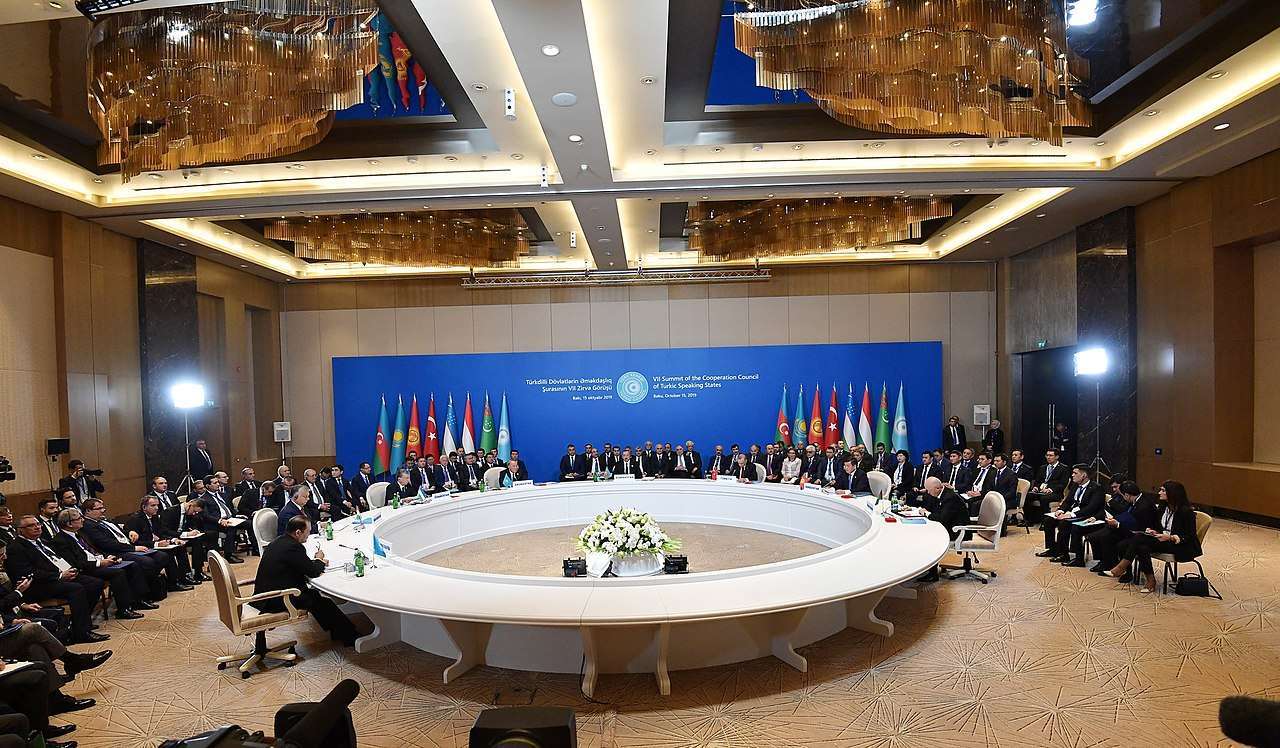Turkey and pan-Turkism in Central Asia: challenges for Russia and China

Geopolitical Report ISSN 2785-2598 Volume 7 Issue 2
Author: Giuliano Bifolchi
The recent online summit of the Cooperation Council of Turkic-Speaking States stressed Ankara’s desire to enhance the cooperation with Central Asian countries elevating its geopolitical role and threatening China and Russia with pan-Turkism ideology.
On March 31st, 2021, during the unofficial summit of the Cooperation Council of Turkic-Speaking States (CCTS), also known as the Turkic Council, Turkish President Recep Tayyip Erdogan stressed the importance of strengthening and developing cargo transportation and logistic projects among Turkic countries.
In Erdogan’s opinion, the Turkic States need to speed up the negotiation to reach an agreement on international combined freight transportation to establish the so-called Trans-Caspian East-West-Middle Corridor, which according to its current description, will go through Georgia, Azerbaijan, and the Caspian Sea, and reach China by following a future Turkmenistan-Uzbekistan-Kyrgyzstan route.
During the unofficial summit, the CCTS members also discussed the 2020 Nagorno-Karabakh conflict and the Azerbaijani victory. It should be noted that after the conflict, Ankara activated and promoted military-technical cooperation with Turkmenistan, Uzbekistan, Kazakhstan and Kyrgyzstan (Kazakhstan and Kyrgyzstan are members of the Eurasian Economic Union and the Collective Security Treaty Organization).
After the collapse of the Soviet Union, the post-Soviet Central Asian republics looked at Ankara as their leading trade and economic partner. At the initiative of Turkey, summits of Turkic-speaking states were held every 2-3 years with the participation of six countries. During one of these meetings, the Turkish President Recep Tayyip Erdogan addressed the participants with the slogan ‘six countries, one nation’. In 2009, the Summit of Turkic-Speaking Countries was transformed into the Cooperation Council of Turkic-Speaking States (CCTS), which included four states: Azerbaijan, Turkey, Kazakhstan and Kyrgyzstan. Uzbekistan joined the CCTS in 2018, while Hungary and Turkmenistan are observers states.
The CCTS members have recently begun editing the textbook “General Turkic history”. In 2015 in Astana, the CCTS ministers of education adopted the plan for writing the textbook, and in 2017 experts from Azerbaijan, Turkey, Kyrgyzstan, and Kazakhstan composed the final version of the book. At the moment, the text has already been adopted in the school history curriculum for middle grades in four CCTS countries. This textbook covers the history of the Turkic-speaking nations from ancient times to the 15th century. In addition, in the future, it is planned to launch similar projects in such areas as “Common Turkic geography” and “General Turkic literature”.
Among the CCTS members, Kazakhstan appeared to be actively committed to promoting Turkic culture and history. Indeed, in the early days of Kazakhstan’s independence, former Kazakh President Nursultan Nazarbayev proposed the idea of a ‘Turkic Union’ and always considered it as a tool of historical and cultural revival. In 2017, at a CCTS conference in Ankara, Nazarbayev repeated the words of the first Turkish President, Mustafa Kemal Ataturk:
“The time has come for all Turkic-speaking peoples to unite. If we unite, we can become a very effective force in the world.”
On June 19th, 2018, Nazarbayev signed a decree to rename the South Kazakhstan region to Turkestan. It is emphasised that the historical significance of the name change lies in the fact that the ‘holy city’ Turkestan is truly considered the ‘spiritual capital of the Turkic world’.
Conclusion
The so-called ‘Turkic culture’ has links to the pan-Turkist ideology that Ankara has been promoting to create a strong coalition in Eurasia united by a common cultural, historical, and linguistic background. Promoting Turkic culture threatens two actors hugely involved in Central Asian dynamics: Russia and China. Indeed, pan-Turkism’s revival in Central and Western Asia might pose a threat to social stability and long-term security in Xinjiang (East Turkestan), the Chinese autonomous region which plays a significant role in Beijing’s Belt and Road Initiative (BRI) and where the Chinese Government fights with the local Muslim Turkic ethnic group of Uighurs.
Even though in November 2015, Turkey and China signed in Antalya a Memorandum of Understanding to integrate the BRI with the Middle Corridor and in June 2019, the People’s Bank of China granted Ankara 1 billion dollars of financial support, the Uighur question strongly influenced Turkish public opinion also because Turkish opposition has often accused Erdogan of betraying his brothers from East Turkestan in exchange of Chinese financial support.
A strong partnership between Ankara and Nursultan also threatens Moscow because pan-Turksims’ revival contrasts the Eurasian Economic Union (EAEU) and the Collective Security Treaty Organization (CSTO), which the Kremlin promotes to establish a Eurasian military and trade integration under its leadership exploiting the Soviet past as an element of connection between Russia and Central Asian republics. By contrast, considering that Kazakhstan shares 7,644 kilometres of borders and around 20% of Kazakh citizens are ethnic Russians, the revival of pan-Turkism and a stronger Anakra-Nursultan partnership in security, economy, and oil & gas might create the precondition for a Russian interference or intervention following the steps of what happened in Crimea and East Ukraine.
Considering that Turkey is a NATO member, Turkic culture/pan-Turkism’s promotion linked with the Uighur question and Ankara’s strengthening as a regional actor in Central Asia might be supported by the West to counter the Russian EAEU and CSTO and the Chinese BRI.
